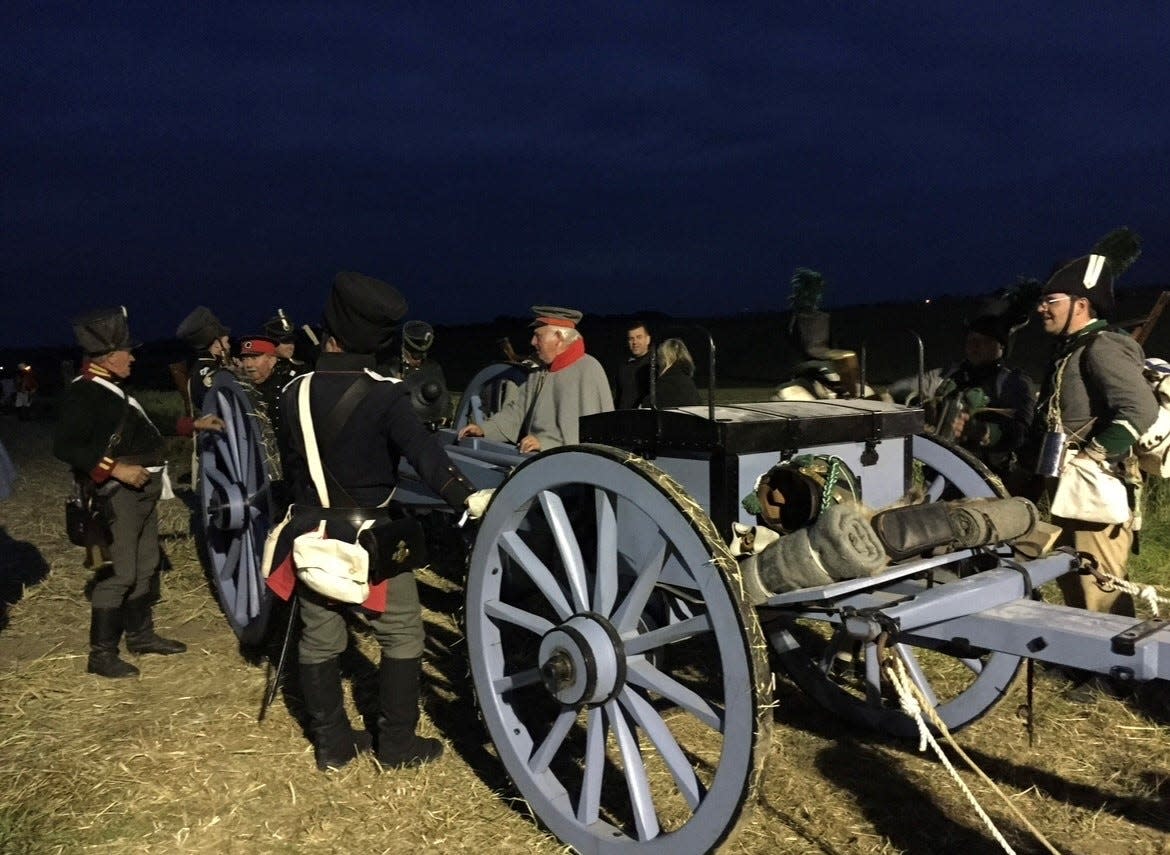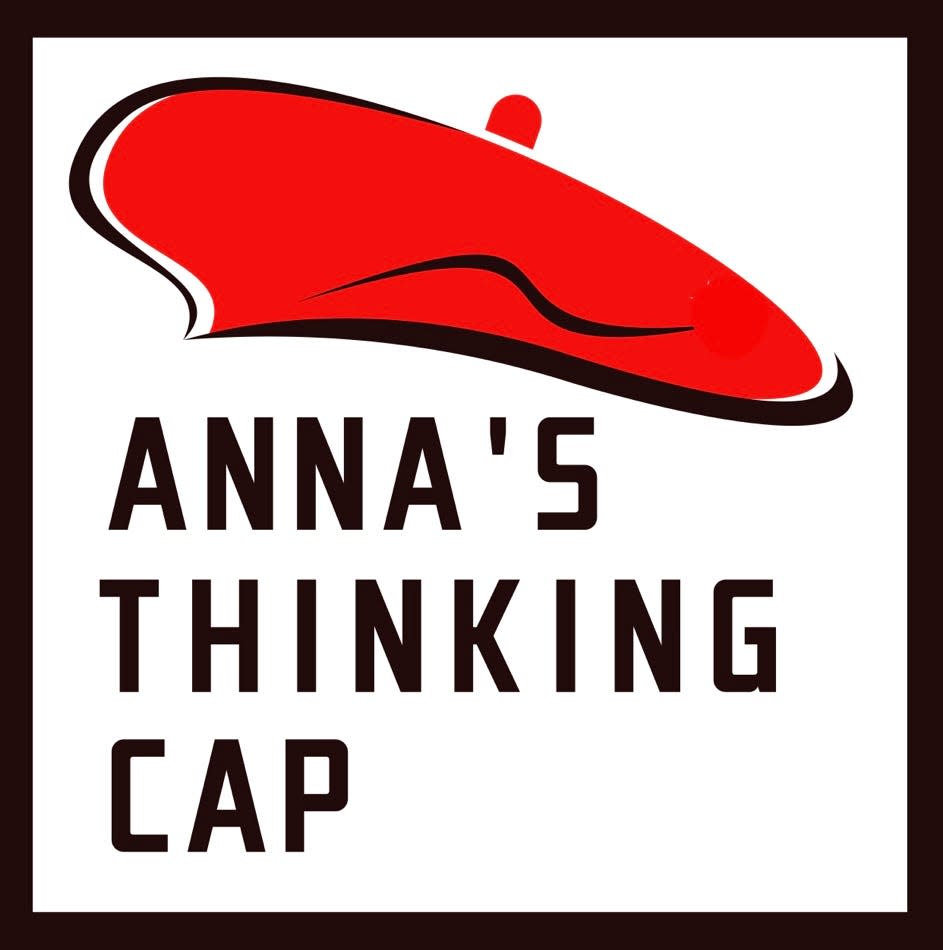Anna's Thinking Cap: The Battle of Waterloo and its historical and literary aftermath

It is common knowledge that at “Waterloo, Napoleon did surrender.” And the fact that the ABBA song is best known around the world in its English iteration is the outcome of the Battle of Waterloo which witnessed the decline of one empire and imperial language, French - and the global ascension of another empire and imperial language, English. On the wet and soggy Sunday morning of June 18, 1815, Napoleon dared his destiny one final time on a battlefield the name of which became synonymous with catastrophic and irreversible defeat − for the French − and global triumph for Britannia whose rise to the status of a global superpower was assured after the annihilation of France, her greatest geopolitical rival since the Battle of Hastings in 1066. Yes, England and France remained in a state of near-perpetual warfare for eight centuries - a hostility finally resolved when Emperor Napoleon Bonaparte - who lost only 6 out of the 60 battles he fought in the course of his tempestuous life - surrendered to the British forces commanded by the Duke of Wellington. Both men were 45 at the time.
Belgium was created as a consequence of the French loss at Waterloo to serve as a neutral buffer state between France and Germany. Waterloo became the inspiration for the naming of 30 communities in the United States, including Iowa’s own Waterloo — and a pilgrimage site.
Lord Byron, the subject of my April column, was one of the first notable visitors to the battlefield in May of 1816 during his second and final trip to the continent. Canto Three of his “Childe Harold’s Pilgrimage” starts with Byron’s literary alter ego, Harold, witnessing the site of the marshal horrors that unfolded only eleven months prior to Byron’s visit:
“And Harold stands upon this place of skulls,
The grave of France, the deadly Waterloo.”
More: "And now I give her my life” - The death of Lord Byron and the birth of Modern Greece
Byron did not share the triumphalism of his compatriots over their victory at Waterloo - ever a seeker of liberty, Byron lamented that with France’s defeat, royalist forces triumphed over the revolutionary ideas proclaimed by the French Republic in the aftermath of 1789:
“Gaul may champ the bit
And foam in fetters; — but is Earth more free?”

Byron’s idealism was echoed by the French novelist Marie-Henri Beyle, known by his pen name Stendhal, whose dashing and gallant young hero Fabrizio del Dongo ends up on the Battlefield of Waterloo at the start of “The Charterhouse of Parma” (1839). Fabrizio dreads the royalist reactionary mood which descends on Northern Italy with Napoleon’s first abdication and exile to the island of Elba. He defies his conservative family and joins his hero Napoleon on the battlefield - only to witness his hopes dashed with the French defeat. Stendhal’s realistic depiction of the Battle of Waterloo influenced countless writers including Tolstoy and Hemingway.
A somber and unflattering depiction of the Battle of Waterloo appears in William Thackeray’s 1847-1848 novel “Vanity Fair” whose spunky heroine Becky Sharp witnesses the chaos the battle unleashes on the inhabitants of the neighboring Brussels. The battle death of one of the main characters of the novel sets in motion the catastrophic events that alter the lives of everyone who makes it out of Brussels and Waterloo alive…
The battle toll of Waterloo was staggering with 50,000 human casualties and 20,000 horses - whose fate was depicted with unflinching honesty by yet another famous writer who visited the battlefield, Victor Hugo. Remarkably, he finished writing the 1862 "Les Misérables" on the battlefield - Book One of Part Two entitled “Waterloo” is often omitted from the abridged versions of the novel, yet is essential to the appreciation of Hugo’s artistic and philosophical vision:
“Looked at from the point of view of its immediate aftermath, Waterloo is meant to be a counter-revolutionary victory. It is Europe against France. It is Petersburg, Berlin, and Vienna against Paris. It is the status quo against any initiative. It is the fourteenth of July 1789 attacked through the twentieth of March 1815. It is the monarchies taking action against the indomitable French mob… Divine right rides on the back of Waterloo.”
More: Anna's Thinking Cap: What Napoleon read in Egypt

Written as an act of civic defiance against the political usurpations of the French Second Empire which Hugo detested with vehemence, "Les Misérables" was a political exile’s contemplation of the role of France in the 19th century and a reassurance that the ideals of revolutionary France, buried temporarily by the monarchies of Europe at Waterloo, are bound to triumph in the end.
“By cutting short the extirpation by the sword of the European monarchies, the effect of Waterloo was none other than to perpetuate the revolutionary enterprise in a different way. The swordsmen have finished, it is the turn of the thinkers. The century that Waterloo tried to halt walked right over it and continued on its way.
That inauspicious victory was vanquished by liberty.”
The “liberty” Hugo foresaw did not actualize till after WWI - the vast majority of countries that constituted the Napoleonic Empire - including Germany, Italy, Austria, Poland, Lithuania, and Russia - ceased being monarchies and are republics today. And this ultimately is the final French triumph over the loss at Waterloo.
More: Anna's Thinking Cap: Chicken Marengo or how Napoleon birthed a dish
Modern-day Waterloo
Today’s Waterloo is a picturesque and quiet municipality - yet the peaceful wheat fields that surround it resound with cannon fire and the galloping of horses during the annual reenactment of the battle - which our family attended in 2015, during the 200th anniversary commemoration of the event. With 60,000 spectators and over 10,000 reenactors - including Napoleon himself (see the accompanying photos), the event attracts international attention. I purchased our tickets through a French-Canadian firm - as a consequence we were seated in a French section, surrounded by a crowd of French speakers who enthusiastically greeted Napoleon each time he rode past our bleachers. Thus I too found myself on the Battlefield of Waterloo - a Belgian waffle in one hand and a Belgian beer in the other - shouting “Vive L'Empereur!” with the jubilant crowd. Somehow I am certain Lord Byron and Victor Hugo would approve!
Anna Barker is an adjunct assistant professor at the University of Iowa. She received her Ph. D. in Comparative Literature in 2002 with a dissertation in translation studies. She has taught University of Iowa courses in the English Department, in Comparative Literature, in Russian Literature, and in the Honors Program.
This article originally appeared on Ames Tribune: Anna's Thinking Cap: The Battle of Waterloo and its historical and literary aftermath
